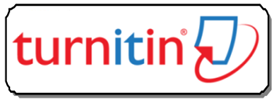Self-Regulation as a Key to Meaningful Teaching in the Digital Transformation Era
DOI:
https://doi.org/10.58223/al-abshar.v4i1.461Keywords:
self-regulation, meaning of work, teachers, digital era, education qualityAbstract
The success of education depends largely on the quality of human resources, particularly teachers who possess strong self-regulation and a deep sense of work meaning in the digital era. However, many teachers still experience a low level of work meaning, often due to limited self-regulation and a lack of reflective understanding of their teaching purpose. This study aims to examine the level of self-regulation and work meaning, and to analyze the influence of self-regulation on the meaning of work among MTs PAI clump teachers. Using a quantitative approach, data were collected through questionnaires on self-regulation and work meaning from 30 teachers at MTs N 1 Banjarnegara, MTs Muhammadiyah Mandiraja, and MTs Al-Ma’arif Rakit. Data analysis involved classical assumption and regression tests. The results indicate a significant positive effect of self-regulation on the meaning of work, with a significance value of 0.046 and a regression coefficient of 0.403, leading to the rejection of H₀ and acceptance of Hₐ. This finding implies that higher self-regulation enhances teachers’ sense of work meaning. The study contributes to understanding how psychological self-management supports teachers in finding purpose, calmness, and relevance in their teaching practice within the digital education landscape.
References
Allan, B. A., Batz-Barbarich, C., Sterling, H. M., & Tay, L. (2019). Outcomes of meaningful work: A meta-analysis. Journal of Management Studies, 56(3), 500–528.
Alwisol. (2012). Personality psychology. Malang: UMM Press.
Andrianto, A. (2021). Pendidikan Islam dan pembentukan karakter insan kamil. Jakarta: Prenadamedia Group.
Badan Pusat Statistik. (2023). Statistik pendidikan madrasah Indonesia 2022/2023. Jakarta: Kementerian Agama RI.
Baiduri, R. (2015). Not just for money: The meaning of the work of Batak Toba women traders (Inang-inang) in Medan City [Thesis, Gadjah Mada University]. Yogyakarta: Gadjah Mada University.
Bastaman, H. D. (2007). Logotherapy: Psychology to find the meaning of life and achieve a meaningful life. Jakarta: Raja Grafindo Persada.
Benny. (2010). Learning system design model. Jakarta: Dian Rakyat.
Dewi, F. I. R. (2019). Self-regulation ability intervention. Yogyakarta: Andi.
Djamarah, S. B., et al. (2013). Teaching and learning strategies. Jakarta: Rineka Cipta.
Etikariena, A. (2014). Differences in work fatigue based on the meaning of work in employees. Journal of Psychogenesis, 2(2).
Fattah. (2017). Job satisfaction and employee performance. Yogyakarta: Elmatera.
Fikriana, R. (2020). Development of a self-regulation model based on beliefs in the ability to care for self-hypertension patients [Dissertation, Airlangga University]. Surabaya: Airlangga University.
Husna, A. N., et al. (2014). Self-regulation of achieving students. Undip Psychology Journal, 13(1).
Johnstone, R., & Sarre, R. (2004). Handbooks regulation: Enforcement and compliance. Canberra, Australia: Australian Institute of Criminology.
Kristiyani, T. (2006). Self-regulated learning. Yogyakarta: Sanata Dharma University Press.
Lestari, L. S., & Mayasarokh, M. (2020). The influence of RA principal leadership and teacher self-regulation on teacher performance at PC Cilimus, Kuningan Regency. Golden Age Journal, 4(2).
Montalvo, F. T., & Torres, M. C. (2004). Self-regulated learning: Current and future direction. Electronic Journal of Research in Educational Psychology, 1(1).
Morin, E. (2008). The meaning of work, mental health, and organizational commitment. San Francisco: IRRST.
Rahman, A., & Fauzan, M. (2022). Recontextualizing Islamic education in the digital era: Challenges and transformations. Journal of Islamic Education Studies, 15(2), 87–101.
Steger, M. F., Dik, B. J., & Duffy, R. D. (2012). Measuring meaningful work: The Work and Meaning Inventory (WAMI). Journal of Career Assessment, 20(3), 322–337.
Sulistiyani, N. W. (2012). Hubungan antara konsep diri dan regulasi diri dengan motivasi berprestasi pada guru. Yogyakarta: Universitas Negeri Yogyakarta.
Zimmerman, B. J. (2000). Attaining self-regulation: A social cognitive perspective. In M. Boekaerts, P. Pintrich, & M. Zeidner (Eds.), Handbook of self-regulation (pp. 13–39). San Diego, CA: Academic Press.
Downloads
Published
How to Cite
Issue
Section
License
Copyright (c) 2025 Suliwati, Ratih, Siti Nok Chalimah

This work is licensed under a Creative Commons Attribution 4.0 International License.
Al-Abshar: Journal of Islamic Education Managements diterbitkan berdasarkan ketentuan Creative Commons Attribution 4.0 International License / CC BY 4.0 Lisensi ini mengizinkan setiap orang untuk menyalin dan menyebarluaskan kembali materi ini dalam bentuk atau format apapun, menggubah, mengubah, dan membuat turunan dari materi ini untuk kepentingan apapun, termasuk kepentingan komersial, selama mereka mencantumkan kredit kepada Penulis atas ciptaan asli.






